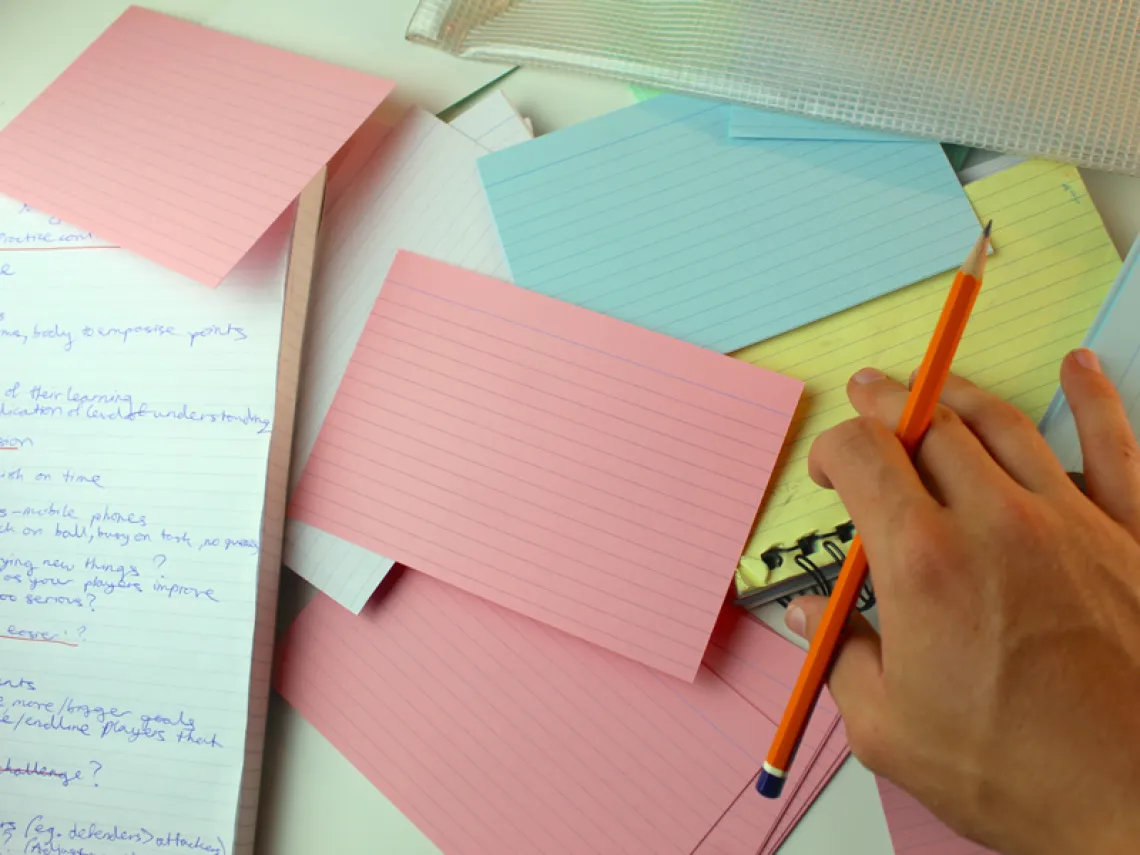Active Recall to the Memory Rescue
Testing yourself can be more successful for test prep than re-reading/studying

Ewan P Photography (Adobe License)
This is part 2 of 3 in the Strategies for Success Series
One of the strongest study methods, tested by both students and research (Larsen et al., 2009), is active recall--or the practice of quizzing yourself, or activating your memory, rather than reading (or re-reading) facts or reviewing diagrams. Active recall activates the "testing effect" whereby your brain is more likely to move information from your short term memory to your long term memory (Roediger & Karpicke, 2006). When paired with a strategy like spaced repetition, you can both increase your ability to recall needed information and retain it for longer.
Active Recall Methods
There are many ways you can use active recall. Below are some of the common methods, and tips/tools for putting them to use. One thing to remember is that none of these need to be overly complicated. Whatever makes this method accessible and useful for you should be the priority, so don't let perfection lead to procrastination. Just a few minutes a day can make a big difference, and save you time. Even if you are unable to answer correctly, the act of trying to retrieve information will make you more likely to retain knowledge over the long term, as it enhances learning (Kornell et al., 2009).
Flashcards
This is the straightforward strategy to employ active recall and engage in active learning. Simply write down the fact / information / process / diagram you want to learn on one side, and then write a question / prompt / blank diagram on the other. You can test your knowledge using either side (explain the answer or describe the question, Jeopardy-style).
If you want to take this to the next level, and assess your learning as you go, simply create a pile for the cards you answer correctly and another pile for the ones you don't. When you are done cycling through all of them, briefly review the ones you missed. Quiz yourself again later (an hour or the next day) and continue the process until you are able to readily recall the information from all the cards.
If you prefer not to use physical flash cards, you can also use apps like Quizlet, Remnote, or Anki.
Generate Questions from Your Notes
For this method, you can use your notes from class to generate exam questions (and answers). Instead of flashcards use two pages (this can be physical paper or digital) and write out questions like an exam. Number each question on the first page and list out the same numbers on the second page with the answers to create a key. Then take your test and assess your learning with the key. Similar to the flashcards, review the answers for the questions you missed. Then take the test again at a later time, and repeat as needed.
Use Old Quizzes or Practice Tests
If your instructor provides an old quiz or a practice test, use it in the same manner as the questions generated from your notes. You can also pair this with the questions you generate from your notes to extend the question bank.
Teach Someone Else / Rubber Ducking
Another method for enhancing your learning using active recall is the practice of teaching a friend, parent or sibling. If you don't have someone available (maybe it's late at night, or you live alone) you can also employ a technique popular with software developers called rubber ducking. This is where you explain the material to an inanimate object, like a rubber duck, just as you would teach a human. Developers often keep a rubber duck on their desk to have for this purpose. You could just as easily use a stuffed animal or a photo, if you prefer. The idea is to use explaining the material to someone, or something, else to search your brain for the material. This can be an excellent tool for preparing for essay questions or exams about complex processes.
Write It Out
Similar to teaching someone, you can also simply write out an explanation to us the active recall method. Simply draft some questions or prompts and then write out your response instead of explaining out loud. If you will have essay responses on your exam, this can be a great way to draft potential responses and review gaps in your understanding. If you have a friend preparing for the same exam you can review each other's responses and provide feedback.
Give It a Try
These are just some suggestions for employing active recall, and they can be modified to fit your needs. The most important thing is that you move away from passive studying, like reading notes or textbooks, and into active studying. If you are preparing for a standardized exam like the MCAT, LSAT, PCAT or GMAT, etc., active recall can be your strongest tool for exam prep.

